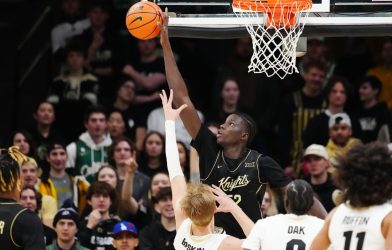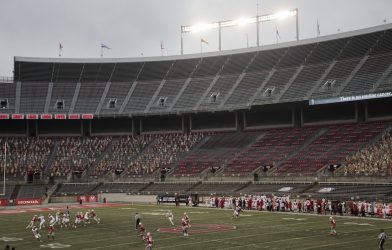It turns out the reports of the death of the dominant running back in the NFL were greatly exaggerated.
There have been many “hot takes” in the last few years about backs being devalued in the NFL. And it’s true that, in general, offenses are more pass-heavy than ever before and that the realities of the salary cap can make it more prudent not to invest high first-round picks and exceptionally lucrative contracts on running backs.
Additionally, finding the best value at running back and saving dollars that can be spread around to other positions can be a wise approach.
But there are exceptions.
The Philadelphia Eagles understood this—and it’s the primary reason they’re in Super Bowl LIX and facing the Kansas City Chiefs next Sunday in the Caesars Superdome.
Eagles CEO Jeffrey Lurie, general manager Howie Roseman, head coach Nick Sirianni and offensive coordinator Kellen Moore knew Saquon Barkley was exceptional after watching him excel for six seasons with the NFC East rival Giants.
Lurie explained the Eagles’ thought process shortly after they signed the former Giant to a three-year, $37.75 million contract last offseason.
“We’re always looking for inefficiencies in the marketplace,” Lurie said at an owners meeting last March. “And if we think the league is overvaluing the position or undervaluing a position, we will try our best … (to) take advantage of those inefficiencies.”
Running backs clearly were being undervalued, and the Eagles saw the value in a rare running back such as Barkley, who rushed for 2,005 yards this season, the eighth most in a single season in NFL history. He finished 100 yards short of Eric Dickerson’s record despite sitting out the final game of the season because Philadelphia was locked into the No. 2 seed in the NFC.
It was the first 2,000-yard season in the NFL since Derrick Henry had 2,027 for the Titans in 2020, which was the only other 2,000-yard season since 2013.
Barkley reversed a trend that had seen the standard for individual rushing yards drop consistently after Henry’s milestone season. The subsequent league leaders—Jonathan Taylor (1,811 in 2021), Josh Jacobs (1,653 in 2022) and Christian McCaffrey (1,459 in 2023)—gained an average of nearly 200 fewer yards than their most immediate predecessors even though their seasons atop the rushing leaders coincided with the expansion to a 17-game season.
Philadelphia leaned more heavily on Barkley during the stretch run. He averaged nearly 25 carries per game in the last seven games he played in during the regular season after averaging nearly 19 in the previous nine.
After finishing with a relatively pedestrian 119 rushing yards and no touchdowns in a wild-card win against the Packers, Barkley had 205 rushing yards and two touchdowns in a divisional-round win against the Rams and 118 yards and three touchdowns in the NFC Championship win over the Commanders.
He has an NFL-record three 60-plus-yard touchdown runs in the last two games. If he has another touchdown run of 60 or more yards against the Chiefs, he’ll become the first player in NFL history to have a 60-plus-yard touchdown run in three consecutive games.
Barkley is winning back respect for running backs.
The last 11 NFL Most Valuable Player awards have been won by quarterbacks, and no one would be surprised if Lamar Jackson or Josh Allen were to make it 12 straight, but Barkley has been widely discussed as a strong candidate. That alone is a pretty significant accomplishment in 2024-2025.
A running back hasn’t won the Super Bowl MVP award since the Broncos’ Terrell Davis did it 27 years ago. Since then, five wide receivers, three linebackers and one cornerback have won the award.
If Philadelphia were to win the Super Bowl, the odds are pretty good that Barkley would win the MVP award for that game.
But regardless of any individual awards that might be forthcoming, Barkley and the Eagles have already shown just how valuable a running back still can be.
You’ve just got to find the right one—like Philadelphia did.








Comments are closed